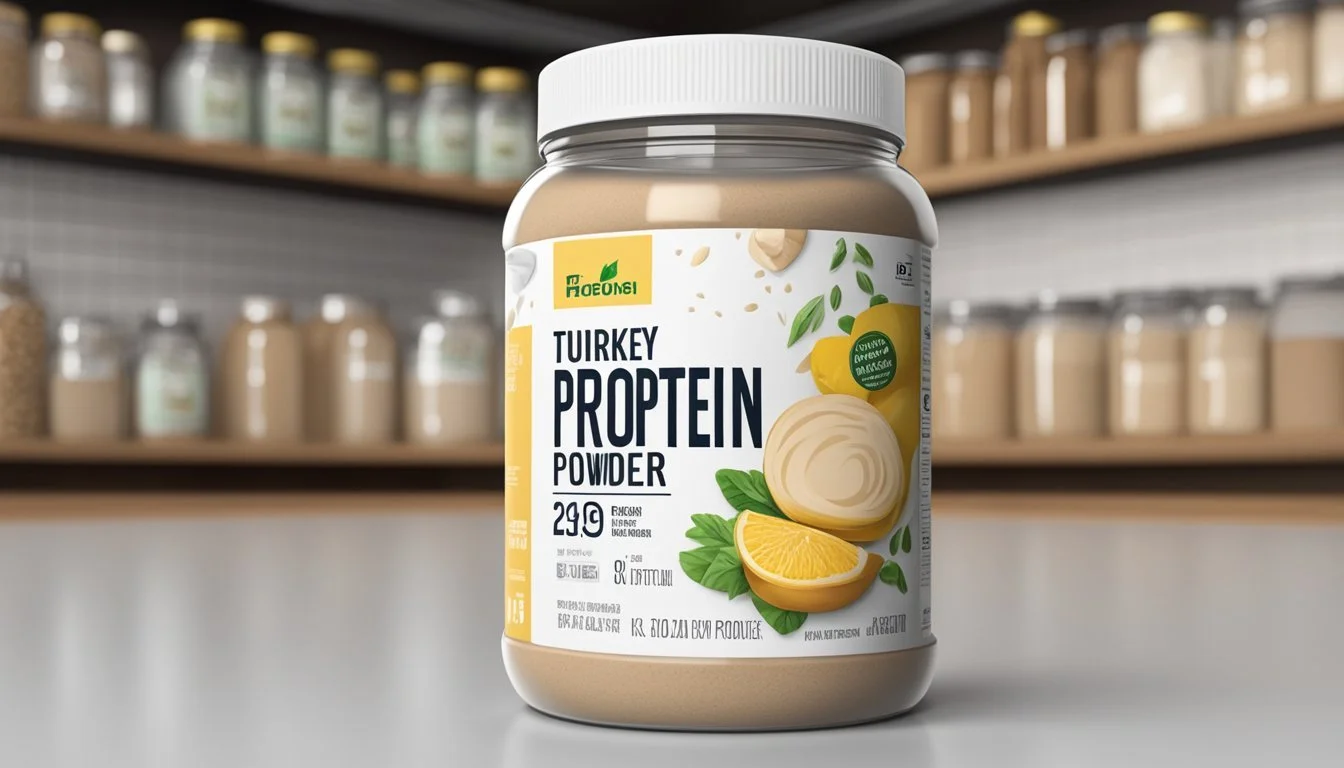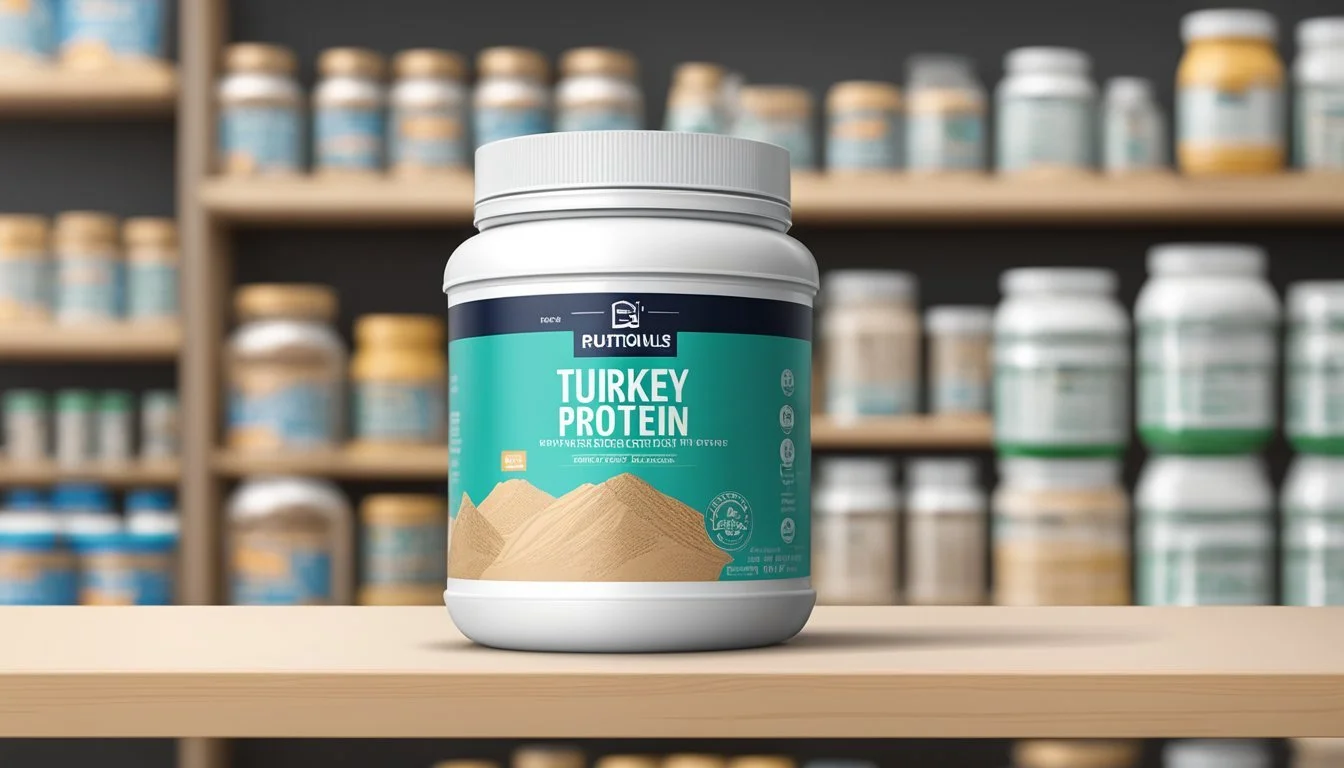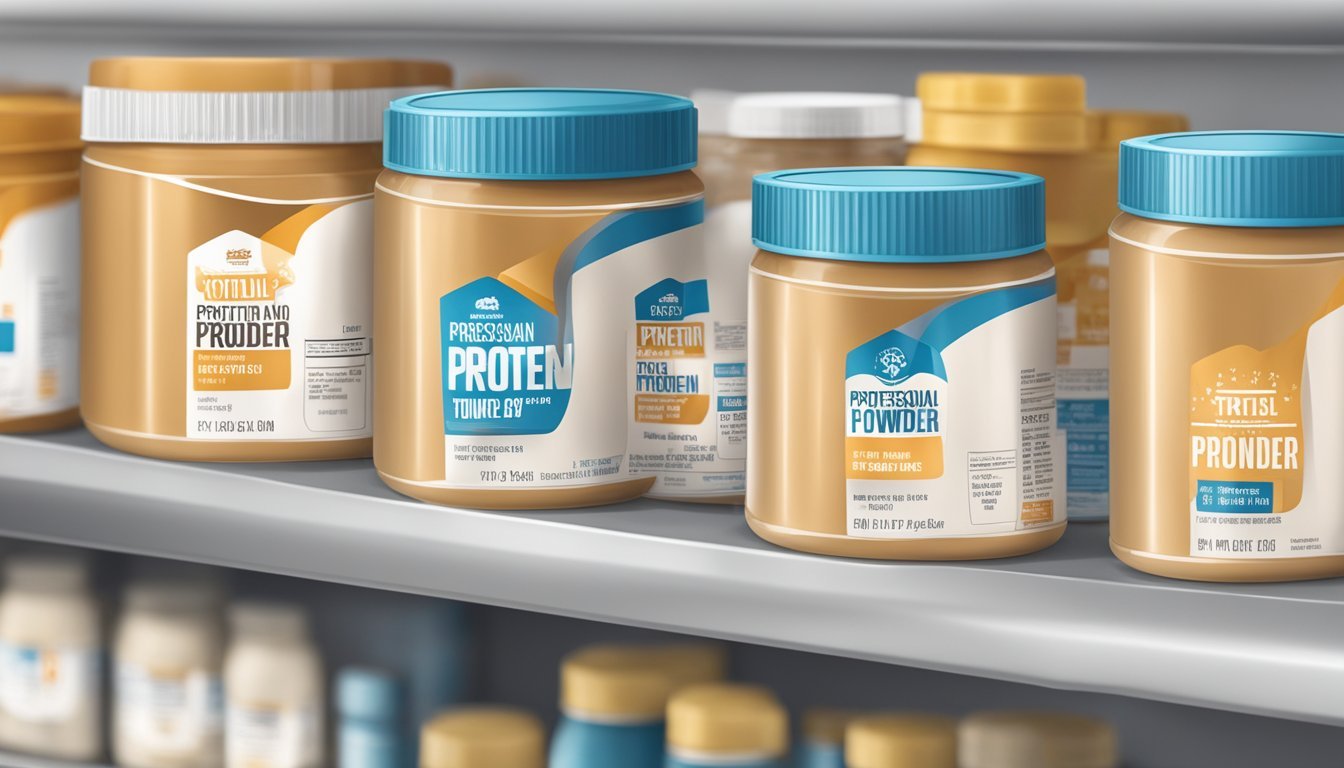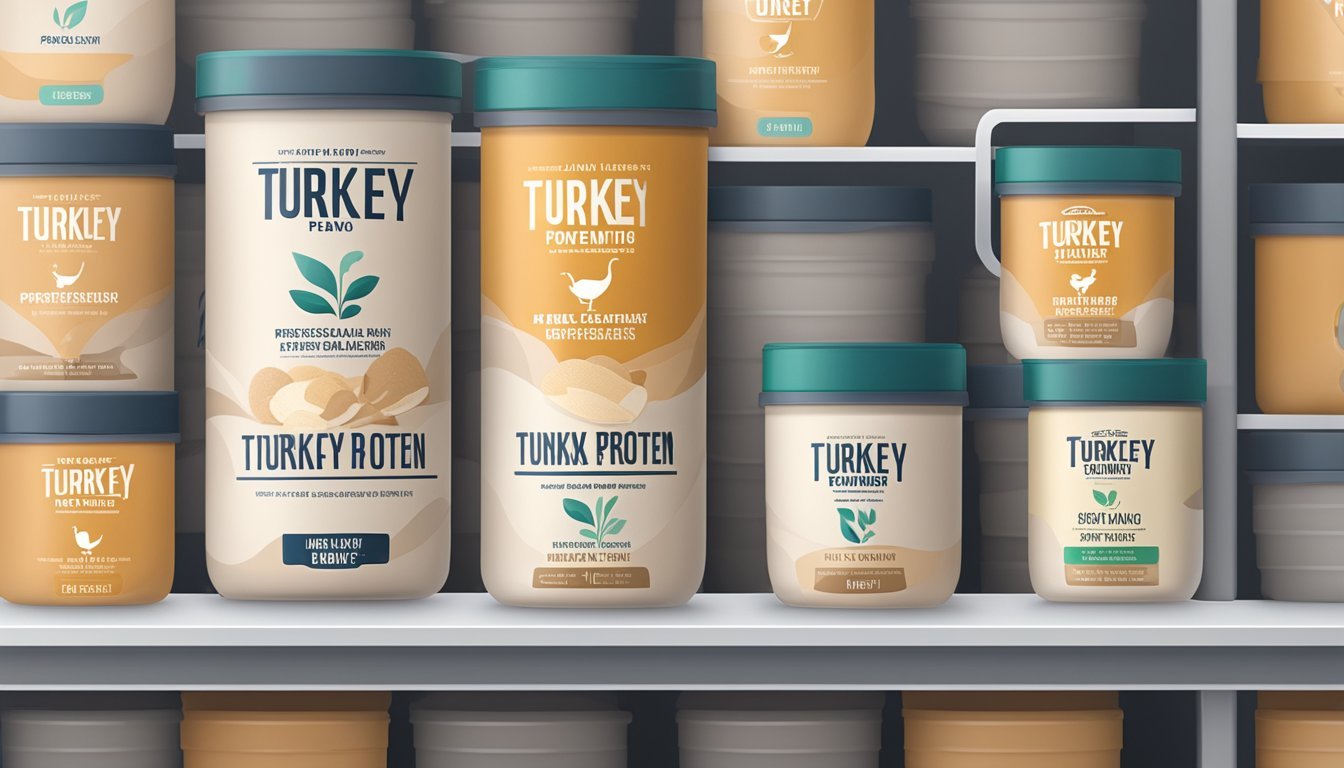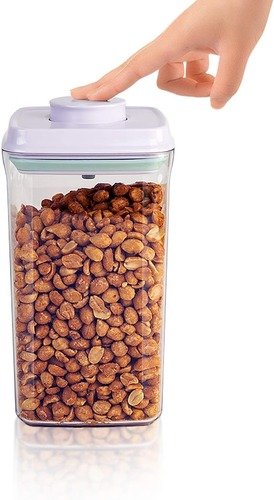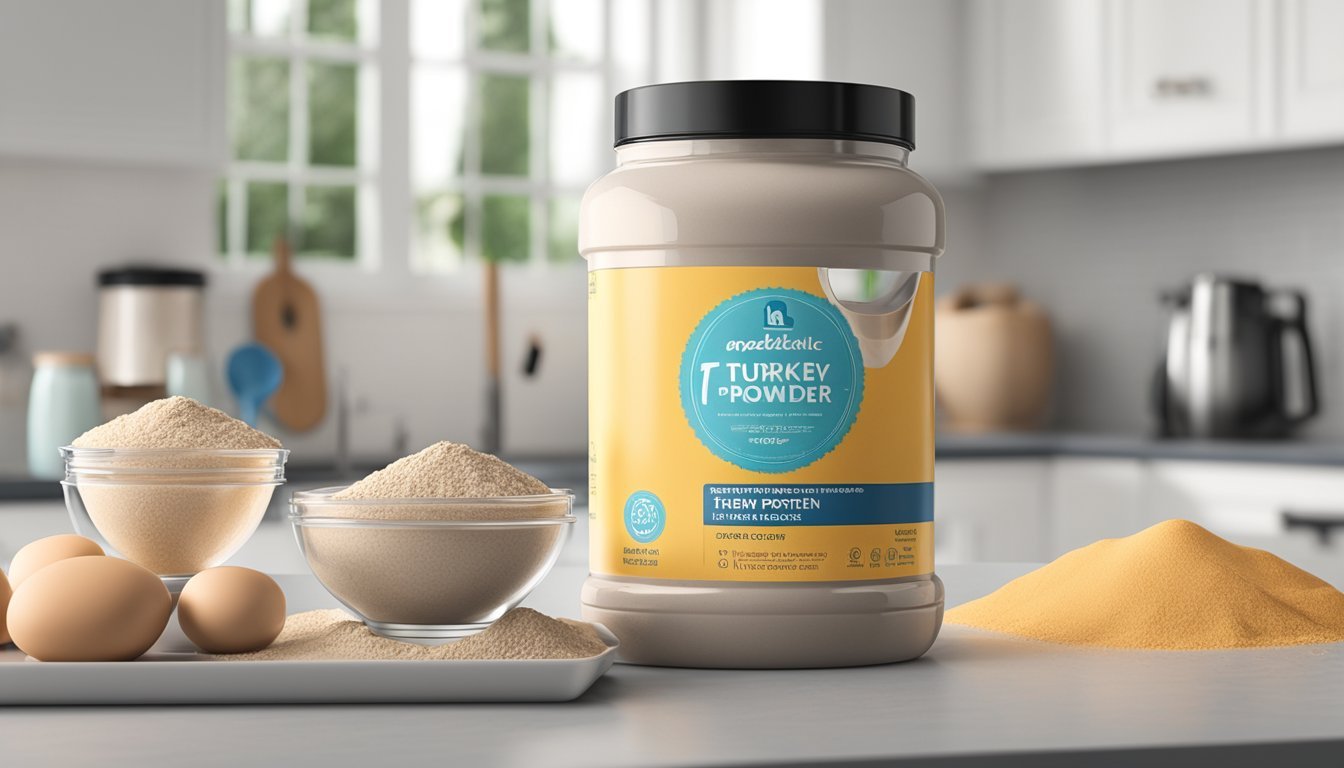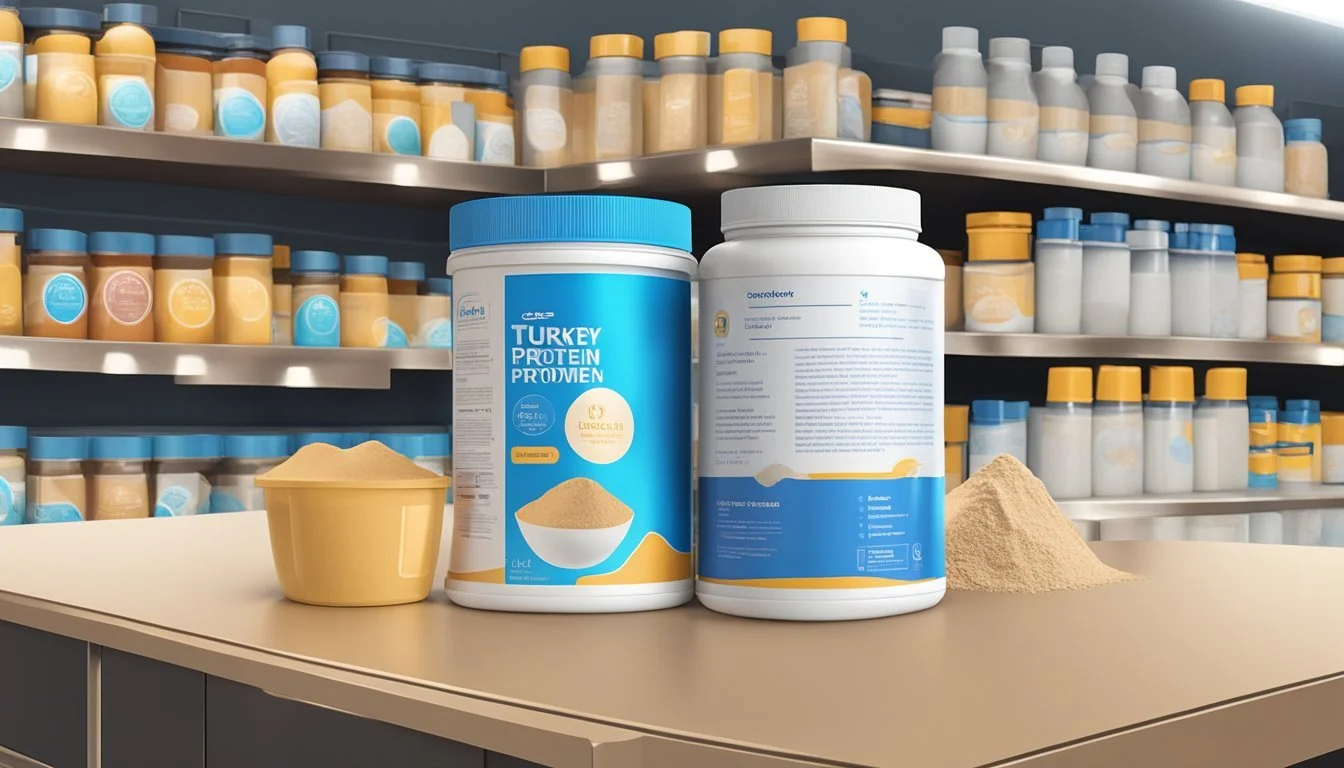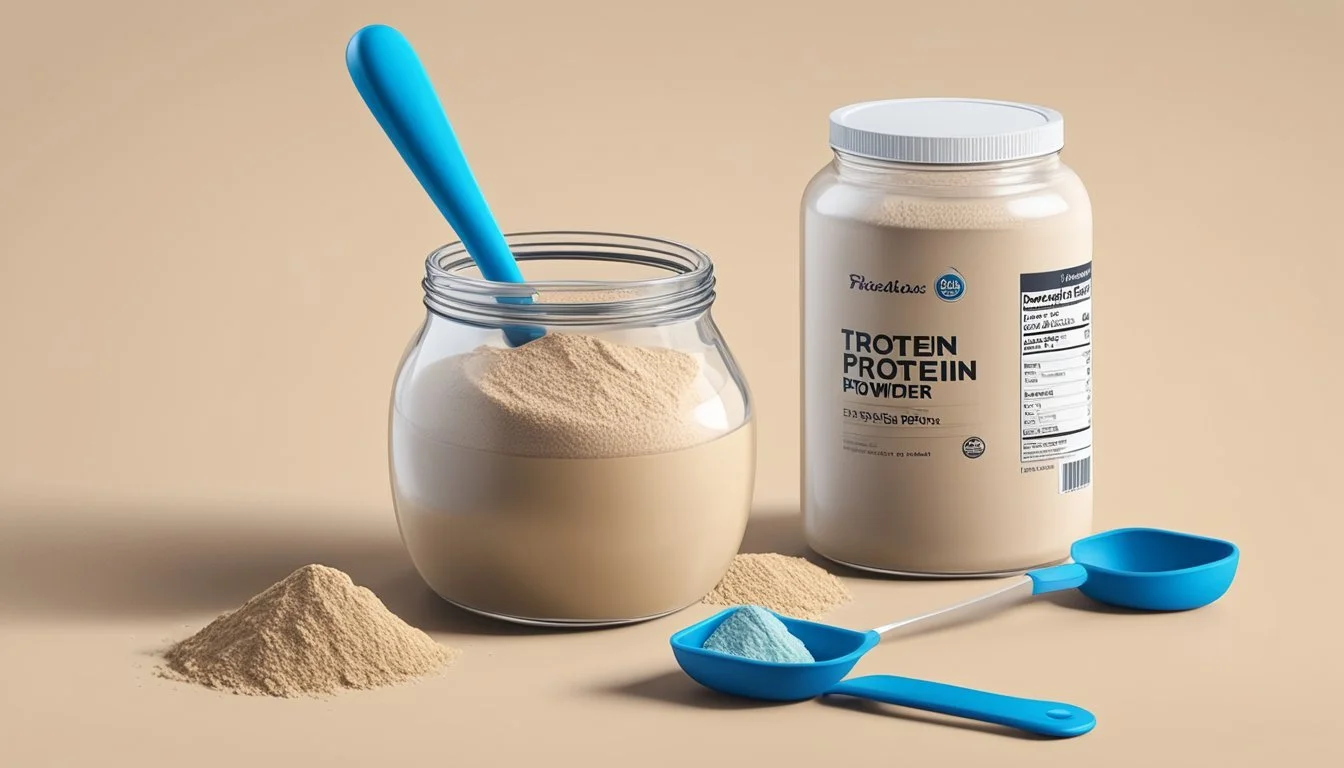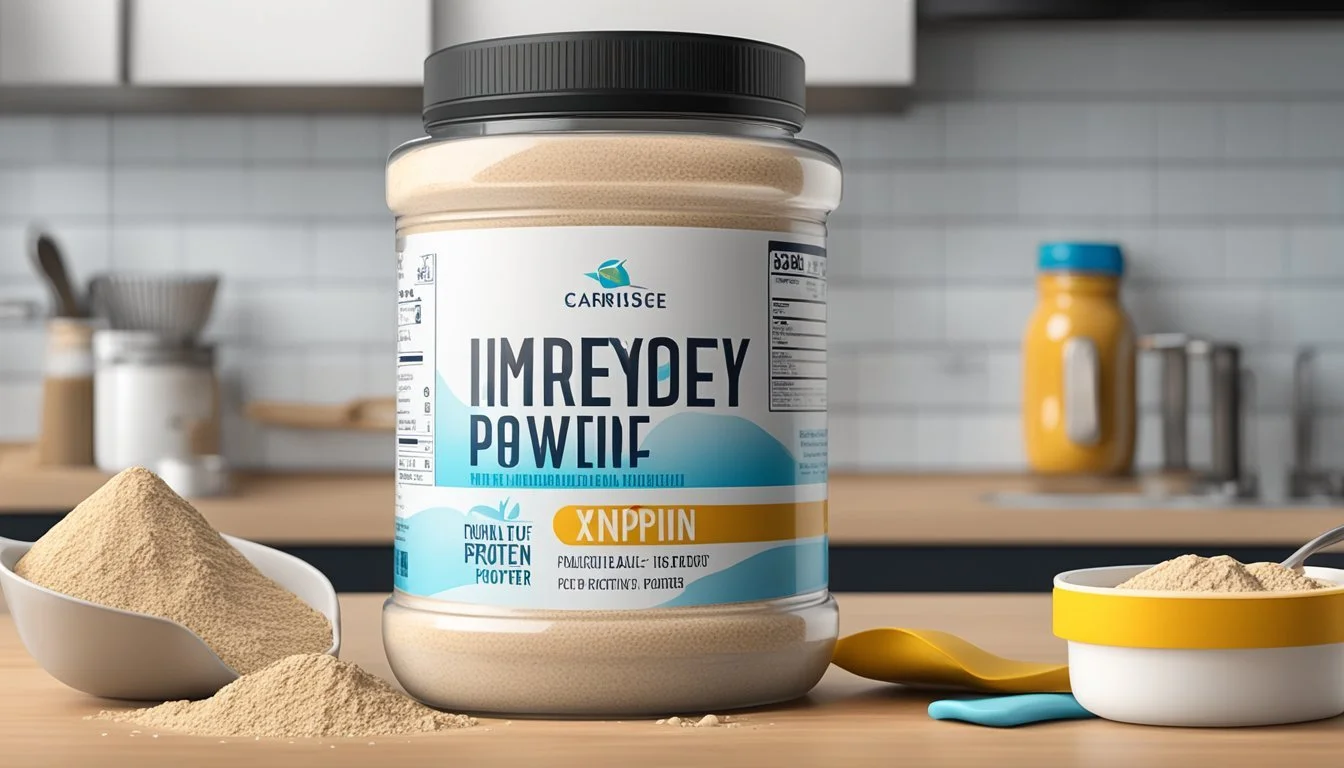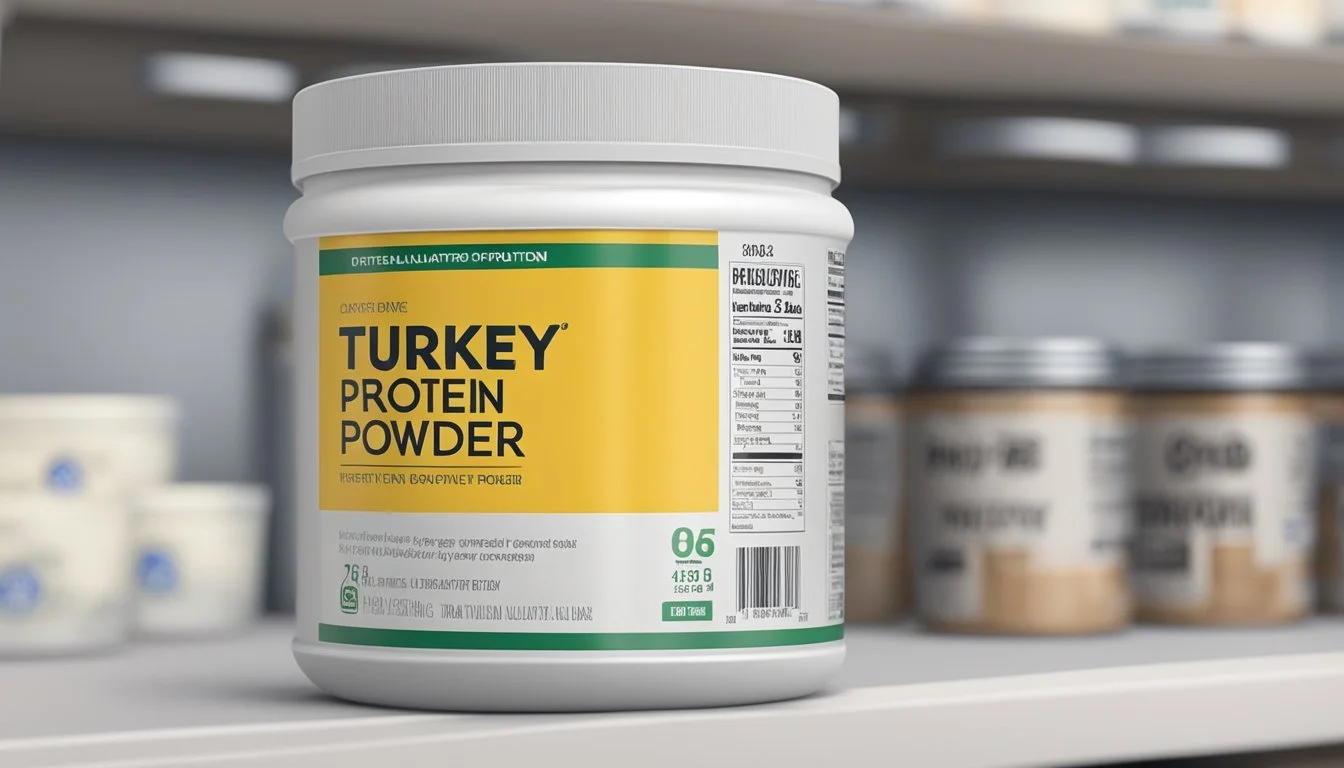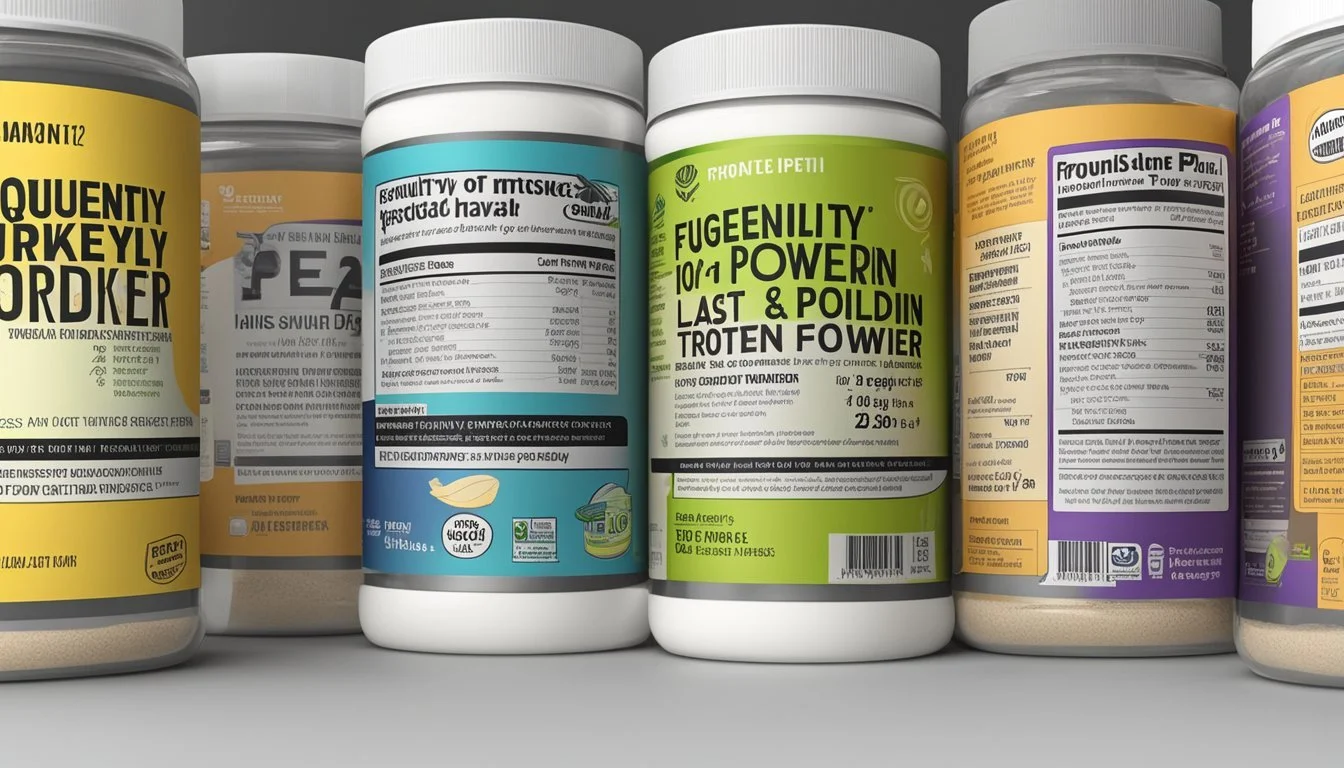How Long Does Turkey Protein Powder Last?
Shelf Life and Storage Tips
Protein powder is a popular nutritional supplement widely used to support dietary needs, especially for those looking to increase their protein intake. Among the various types of protein powders available in the market, turkey protein powder is recognized for its distinctive source—being derived from turkey meat, which is an excellent source of lean protein. As with all protein powders, understanding its shelf life is critical for maintaining its nutritional benefits and ensuring health safety.
The longevity of turkey protein powder, like other protein supplements, depends on various factors including storage conditions, ingredients, and the presence of preservatives. Typically, protein powders can last anywhere between six months to two years when stored properly. It is important for consumers to note the "best by" or expiration dates provided by manufacturers as these are indicators of the product's optimal quality.
Ensuring the turkey protein powder is kept in a cool, dry place away from direct sunlight helps to preserve its quality and extend its shelf life. Although some protein powders may remain safe to consume after the expiration date, the nutritional value could degrade, potentially affecting its efficacy. Consumers should always inspect their protein powder for any changes in smell, texture, or taste before use, as these can be signs that the product has expired and may no longer be beneficial for health and nutrition.
Understanding Protein Powder
When it comes to protein powders, consumers should be aware of the different types available, their nutritional content, and the key ingredients that can affect both their benefits and shelf life.
Types of Protein Powders
Turkey protein powder is a lesser-known category that falls within the broader spectrum of protein supplements. Common types consumers may be more familiar with include:
Whey Protein: Sourced from milk and rich in all essential amino acids.
Casein Protein: Also derived from milk but digests more slowly than whey.
Plant-Based Protein: Includes sources like pea, rice, and hemp, which are favorable for those with dairy intolerances or following a vegan diet.
Nutritional Profile
Turkey protein powder contains a significant amount of protein, which is essential for muscle repair and growth. Typical content in protein powders can include:
Protein: Ranges from 15 to 30 grams per serving.
Amino Acids: Crucial for protein synthesis and recovery.
Vitamins: Some powders are enhanced with vitamins for added nutritional benefits.
Key Ingredients and Additives
The stability and efficacy of protein powders rely on:
Preservatives: Extend shelf life and maintain product quality.
Flavorings: Improve taste, making the powder more palatable.
Emulsifiers: Ensure consistent texture and prevent ingredient separation.
It is the presence of these additives in protein powders such as turkey protein that can impact their shelf life and nutritional effectiveness.
Shelf Life Fundamentals
When purchasing turkey protein powder, consumers should be aware of its expiration date, the factors that may affect its longevity, and the signs of spoilage to ensure that it remains a safe part of their diet.
Average Expiration Date
Turkey protein powder typically carries an expiration date, which is the manufacturer's estimate of how long the product will remain at its peak quality. This date commonly ranges from 12 to 18 months from the date of manufacture. It is important to note this timeframe when purchasing to maximize the product's lifespan.
Factors Influencing Shelf Life
The shelf life of turkey protein powder can be influenced by several factors:
Storage conditions: Cool, dry locations away from direct sunlight help in extending product life.
Packaging: Airtight containers prevent oxidation and moisture intrusion.
Manufacturing process: The inclusion of preservatives can extend the shelf life.
Handling: Exposure to moisture or contamination through utensils can reduce product freshness.
Recognizing Spoilage
Consumers can identify spoilage in turkey protein powder through:
Odor: A sour or off smell is a clear indication the product has spoiled.
Texture: Clumping or changes in texture often suggest moisture has compromised the powder.
Color: Any discoloration might mean that the product has degraded or become contaminated.
Health Implications of Expired Protein
Consuming expired turkey protein powder may not always be harmful, but it can carry risks, such as reduced nutritional efficacy and the potential for foodborne illness. While some products may remain safe to consume past their expiration date, it's crucial to be cautious and avoid any protein powder that shows signs of spoilage.
Proper Storage Solutions
To maintain the quality and shelf life of turkey protein powder, one must consider the environment in which it is stored. This section will guide you through setting those ideal conditions and offer practical tips for prolonging the powder's usability.
Ideal Conditions for Storage
When storing turkey protein powder, it should be kept in a cool, dry place away from any heat sources or humidity. Temperatures ideally should be consistent and below 70°F. Humidity levels can affect the powder's integrity, so it is vital to ensure that the storage area maintains a relative humidity below 50%. A pantry or a cupboard, away from the stove, oven, or dishwasher is typically a suitable location.
Tips for Extending Shelf Life
Airtight Container: Always store the protein powder in an airtight container. Exposure to air can lead to contamination and degradation of the powder's quality.
Refrigeration: While not always necessary, placing the container in the refrigerator can further extend its shelf life by keeping it at a stable, cool temperature.
Avoid Sunlight: Keep the protein powder in a dark place to protect it from the potential damage caused by sunlight. Exposure to light can compromise the protein's flavor and nutritional value.
Original Packaging: If the original packaging is resealable and includes a desiccant or oxygen absorber, it may be best to keep the powder sealed inside it.
Usage Habits: Minimize the time the container is open to prevent moisture from getting in. Use a clean, dry scoop every time to discourage bacterial growth.
Trust me, the easiest way to buy airtight containers is through online retailers!
Signs of Protein Powder Degradation
When turkey protein powder begins to degrade, the quality can be compromised, and it becomes less palatable and potentially unsafe to consume. Heed the following signs to assess if the protein powder has undergone degradation.
Changes in Taste and Odor
One of the earliest indicators of protein powder degradation is a change in taste. If the powder develops a bitter or sour flavor, it's a sign that it may no longer be suitable for consumption. Additionally, a rancid smell emanating from the powder is a clear sign that the fats within the turkey protein powder have begun to oxidize, signaling degradation.
Texture and Appearance Issues
Texture changes, such as clumping or a change in consistency, can point to moisture exposure, which may lead to mold growth and spoilage. A visual check for discoloration or any form of spotting on the powder should not be overlooked as they indicate diminished quality.
Impacts of Environmental Factors
Environmental factors significantly influence the shelf life of turkey protein powder. These factors can cause degradation, reducing both the nutritional value and safety of the product.
Temperature and Humidity Effects
Temperature and humidity are crucial determinants for the preservation of turkey protein powder. Optimal storage involves keeping the powder in a cool and dry place to prevent the proliferation of moisture-loving pathogens and the acceleration of chemical degradation processes.
Heat: Excessive temperatures can denature proteins, affecting their structure and function.
Cool: Cooler temperatures slow down the rate of microbial growth and chemical reactions.
Humidity: High humidity levels can lead to clumping and potential mold growth, whereas low humidity helps preserve the powder’s quality and extend its shelf life.
Light Exposure and Oxidation
Light, especially UV light, can trigger oxidation, a chemical reaction that compromises the quality of turkey protein powder.
Light Exposure: Prolonged exposure to light can lead to a loss of amino acids and the degradation of vitamins within the powder.
Oxidation: When protein powders are exposed to oxygen, this reaction leads to the breakdown of flavors and can cause rancidity, affecting both taste and nutritional value.
For the best preservation, turkey protein powder should be stored in airtight containers away from light sources.
Protein Powder Usage Insights
Protein powder, particularly turkey protein powder, is not just a dietary supplement; it is a versatile tool in one's diet and fitness journey. It serves diverse functions, from muscle recovery to weight management.
Optimal Times for Consumption
The proper timing for protein powder consumption can be pivotal for one's fitness results. One may prefer to consume a protein-rich drink post-workout to aid muscle recovery and fuel the repair process. Despite earlier beliefs that protein needed to be consumed within a 30-minute window post-exercise, recent insights suggest that overall daily protein intake is more critical. Thus, while immediate post-workout consumption is beneficial, evenly distributed protein intake throughout the day can also support physical goals.
Incorporation into Diet and Fitness
Incorporating turkey protein powder into one's diet can help meet protein needs in a convenient and effective manner.
As a Drink: A smoothie or shake is a popular way to blend protein powder with other nutrients.
With Meals: It can also be mixed with oatmeal or yogurt to enhance protein content.
Weight Management: For individuals focusing on weight management, protein powder can provide a satiating option with lower calories compared to whole food proteins.
Moreover, turkey protein as a supplement can cater to those with specific dietary preferences and restrictions, offering an alternative to dairy-based protein powders. It aligns with a fitness regimen by providing the necessary building blocks for muscle repair without adding excessive calories.
Avoid the crowds and shop for turkey protein powder online from the comfort of your home!
Regulatory and Safety Considerations
The shelf life of turkey protein powder, like other food products, is subject to regulatory oversight. Manufacturers must adhere to established safety standards to ensure consumer wellbeing.
FDA Guidelines and Standards
The Food and Drug Administration (FDA) does not explicitly set expiration dates for turkey protein powder or other supplements. However, they require manufacturers to determine and label a date of expiry or best by date that indicates until when the product is expected to remain at peak quality. The FDA mandates that all food labels be truthful and not misleading, indirectly influencing how expiration dates are set.
Quality Control: Manufacturers must follow Good Manufacturing Practices (GMPs), ensuring the product is safe and has been produced under sanitary conditions.
Labeling Regulations: Expiration date, ingredients, and any allergens must be clearly stated on the product label.
Assessing Protein Powder Safety
After the labeled expiration date, turkey protein powder does not necessarily become unsafe but may experience a decline in potency or quality. To assess protein powder safety, one should consider:
Appearance: Any changes in color or texture.
Smell: Off odors can indicate spoilage.
Moisture: Clumping suggests moisture inside the container, which could result in bacterial growth.
Storage conditions also play a pivotal role in maintaining the safety of the protein powder. The product should be stored in a cool, dry place, away from direct sunlight and heat sources to maximize shelf life and maintain safety.
Maximizing Protein Powder Benefits
To obtain the most value from turkey protein powder, consumers should align their choice of protein with their fitness goals and understand the importance of protein type. These determinants play a crucial role in how effectively the protein powder can support muscle growth, recovery, and overall health.
Aligning with Fitness Goals
Selecting a protein powder should begin with an evaluation of one's fitness objectives. Muscle gain, for instance, often requires a high protein intake immediately following a workout, while endurance training may benefit from a steady release of protein over time to aid muscle recovery. Individuals should consider the timing of consumption to coincide with their workout regime, ensuring optimum muscle repair and growth.
Selection Based on Protein Type
Protein powders are derived from various sources, impacting their absorption rate and amino acid profile. Turkey protein powder is a rich source of animal-based protein, providing a complete spectrum of essential amino acids necessary for muscle synthesis. Key differences in protein types are outlined below:
Animal-based proteins: Typically contain all essential amino acids and are easily absorbed by the body.
Plant-based proteins: May lack one or more essential amino acids but can be combined to form a complete protein profile.
For those who consume animal-based products, turkey protein powder can be a powerful ally. One should ensure the product is of high-quality to maximize the benefits it can provide towards reaching fitness goals.
Advanced Topics in Protein Degradation
When considering the longevity and efficacy of turkey protein powder, one must focus on the complex interactions that lead to protein degradation. These advanced topics shed light on the nuanced chemical processes that could affect the nutritional value and usability of the protein powder.
Chemical Reactions and Protein Quality
The stability of turkey protein powder hinges on various chemical reactions that occur during its storage. One major reaction that can negatively impact protein quality is the Maillard browning, a chemical reaction between amino acids and reducing sugars. This reaction not only compromises the appearance and flavor of the protein powder but can also lead to a reduction in the nutritional value, particularly concerning the essential amino acid lysine. Lysine is highly susceptible to damage via the Maillard reaction due to its reactive amino group. The extent of Maillard browning in protein powders increases with exposure to higher temperatures and humidity.
Specific Amino Acid Stability
The stability of individual amino acids within turkey protein powder is of particular interest because they are the building blocks that dictate the powder's overall nutritional profile. For instance, lysine is an essential amino acid critical for human health, and its degradation can significantly diminish the protein's nutritional value. The stability of lysine and other amino acids is influenced by:
pH levels: Certain amino acids are more stable at specific pH levels. Deviations can lead to increased degradation.
Storage conditions: Temperature and moisture are vital in determining how long a protein powder retains its quality. Elevated temperatures and high humidity accelerate the degradation process.
Oxidative reactions: Amino acids can undergo oxidation, leading to a change in both structure and function. This can affect not just the powder's efficacy but also how the body will utilize the protein.
By understanding the mechanisms of protein degradation, one can better appreciate the importance of proper storage and handling to maintain the nutritional integrity of turkey protein powder.
Consumer Considerations
When choosing turkey protein powder, consumers should carefully assess product labeling and brand reputation to ensure they are selecting a high-quality product with a shelf life that meets their needs.
Understanding Best By and Use By Labels
Best By dates are the manufacturer's estimates of when the turkey protein powder will be at its peak quality. These dates are not safety deadlines but suggest when a consumer may begin to notice a decline in flavor or potential effectiveness. The Use By date, on the other hand, is a marker of the end of the period during which the product is considered most effective or safe to consume. It is critical for consumers to understand that while a turkey protein powder may not necessarily be dangerous to consume after the Use By date, its quality may no longer be guaranteed.
Brand Quality and Product Selection
The selection of turkey protein powder should also take into account the reputation of the brand and the quality of the product. Higher-quality brands commonly utilize better ingredients and may include preservatives that can extend the shelf life of the protein powder. Consumers should look for brands that provide clear information about the source of the turkey, the additives included, and the type of preservative methods used if any. This information can be indicative of the overall quality of the product and its anticipated shelf life.
Label Type Purpose Best By Quality indicator Use By Safety guideline
By closely examining these components, consumers can make more informed decisions and potentially select a turkey protein powder that aligns with their expectations for taste, health, and longevity.
Practical Tips and Recommendations
When assessing the longevity of turkey protein powder, two major considerations come into play: detecting its current state of freshness and deciding when it is time to dispose of it. These factors are critical to ensure both the nutritional quality and safety of the protein powder.
How to Tell If Protein Powder Is Still Good
To determine if your turkey protein powder is still suitable for consumption, one should look for:
Signs of Degradation: This includes changes in color, texture, or consistency. If the powder appears caked or has hard clumps, it may have absorbed moisture, which can lead to spoilage.
Smell: A rancid or off odor is a clear indicator that the protein powder should not be consumed.
Taste: If there is a noticeable change in taste or if it tastes sour, this could signify spoilage.
It's essential to note that while expiration dates on packaging can serve as useful guidelines, they don't necessarily denote the exact point at which protein powder is no longer usable. A product may still be safe to consume if it shows no signs of spoilage, even slightly past the indicated date.
When to Discard Protein Powder
Turkey protein powder should be discarded when:
Spoilage is Evident: Presence of mold growth or an unmistakable rancid smell indicates that the powder has gone bad and should not be consumed,
Expiration Date is Far Exceeded: If the powder is well beyond its expiration date, the risk of degraded nutritional quality increases, and it's advisable to err on the side of caution and discard the product.
When in doubt regarding the integrity of your protein powder, it's always safest to prioritize health and dispose of any supplement that exhibits potential signs of spoilage.
Special Topics for Athletes and Bodybuilders
Athletes and bodybuilders have distinct nutritional requirements that differ from the general population, especially when it comes to protein intake and supplementation for high-performance goals.
Specific Needs for High-Performance Individuals
High-performance individuals, such as athletes and bodybuilders, often require higher levels of protein to support muscle repair, growth, and overall recovery. A typical guideline for these individuals is to consume:
Men: 1.2 to 2.2 grams of protein per kilogram of body weight per day.
Women: 1.0 to 1.7 grams of protein per kilogram of body weight per day.
Whey protein concentrate is a common choice among these groups because it is rich in branched-chain amino acids (BCAAs), which are crucial for muscle protein synthesis. Convenience is key in a busy athlete or bodybuilder's regimen; thus, a scoop or scooper included with the protein powder allows for quick and accurate measurement.
Evaluating Protein Powder for Athletic Use
When evaluating turkey protein powder for athletic use, two characteristics are fundamental:
Quality of protein: The digestibility and amino acid profile. Whey protein should ideally be low in fat and carbohydrates, focusing on the protein content.
Shelf-life: Athletes and bodybuilders should assess the expiration date of protein supplements. While protein powders can last well beyond their 'best by' date, their potency may diminish over time.
Athletes using supplements must consider their fitness goals and the specific timings of protein intake to avoid gastric discomfort and ensure maximum absorption. For example, consuming protein with a shaker bottle immediately post-workout can help with quick nutrient delivery to the muscles.
Innovations and Trends in Protein Powders
The protein powder industry consistently evolves, addressing consumer health trends and environmental concerns. Here, the focus pivots to two notable shifts: the proliferation of plant-based protein options and the implementation of advanced packaging technologies.
The Rise of Plant-Based Options
Plant-based protein powders have surged in popularity as consumers increasingly opt for vegetarian and vegan supplements. These protein powders are derived from a variety of sources, including:
Pea Protein: Rich in essential amino acids and easily digested.
Rice Protein: A good hypoallergenic protein source suitable for those with allergies.
Hemp Protein: Contains omega-3 and omega-6 fatty acids, offering a well-rounded nutritional profile.
Manufacturers are ensuring that these plant-based supplements are as efficient as their animal-based counterparts in muscle repair and growth. They often blend multiple plant proteins to create a complete amino acid profile, critical for those using protein powder as a staple in their diet.
Emerging Technologies in Packaging
Innovations in packaging have extended the shelf life of protein powders, ensuring that they remain shelf-stable for a longer period. Key technologies include:
Moisture-Resistant Packaging: Protects the product from humidity, a principal factor in product degradation.
Nitrogen Flushing: This technique replaces oxygen in the packaging with nitrogen to reduce oxidation, thereby preserving the quality of the protein powder.
Such advancements have allowed manufacturers to promise extended shelf stability, which is indispensable for consumers who do not use their protein powder rapidly. These enhancements in packaging not only preserve the product's nutritional value but also promote sustainability through the use of recyclable materials.
Frequently Asked Questions
In this section, one will find clear and informative answers to common questions regarding the usage and shelf life of turkey protein powder. Whether one is inquiring about proper storage methods or deciphering shelf life indicators, these insights aim to dispel myths and provide factual guidance.
Common Queries About Protein Powder Use
How long does turkey protein powder last once opened?
Typically, turkey protein powder can last between 6 to 12 months once opened, if stored appropriately. It is essential to keep it in a cool, dry place and ensure the container is sealed tightly after each use.
What signs indicate that protein powder has gone bad?
One can look out for changes in:
Smell: A sour or unusual odor can indicate spoilage.
Texture: The presence of clumps or a change in consistency may be a sign that moisture has entered the powder.
Color: Any discoloration could suggest decomposition or mold.
Taste: If the flavor is off or unpleasant, it should not be consumed.
Misconceptions About Protein Powder Shelf Life
Does the 'best by' date on protein powder indicate when it becomes unsafe to consume?
Not necessarily. The 'best by' date generally signifies when a supplement may start to lose its peak freshness and potency, not when it is unsafe to consume. However, if a supplement is significantly past this date, it could lead to a decline in nutritional value and sometimes cause gastrointestinal discomfort if ingested.
Can additives like sugar and salt extend the shelf life of protein powders?
Additives have different effects:
Sugar and Salt: While these can act as natural preservatives in some foods, their role in extending the shelf life of protein powders is less significant. Protein powders typically contain less of these components.
Lecithin and Maltodextrin: These are more common and serve as emulsifiers or fillers in protein powders, potentially affecting shelf life by ensuring consistent texture and mixability.
To maximize freshness and safety, consumers should adhere to storage guidelines provided by the manufacturer and pay close attention to the product's organoleptic properties over time.
Conclusion
Shelf Life of Turkey Protein Powder
Typically, turkey protein powder shares a similar shelf life range with other protein supplements, commonly spanning from six months to two years when unopened. Once opened, proper storage is key to maintaining its longevity. The presence of preservatives and manufacturing techniques can influence the protein powder's durability.
Storing for Optimal Quality
To preserve its quality, one should store the protein powder in a cool, dry place away from direct sunlight and moisture. The original packaging, often designed to protect the contents, is usually the most suitable storage container, or one can transfer the powder to an airtight container.
Heeding Expiration Dates
While the expiration date is a useful guide, protein powder can retain its quality slightly beyond this date if stored correctly. However, noticeable changes in smell, taste, or texture indicate the product may no longer be suitable for consumption.
Nutritional Integrity
The nutritional content, particularly the protein content, can diminish over time, making it less effective for those relying on it for dietary supplementation. It is prudent to assess the quality of the protein powder regularly, to ensure it still meets personal nutrition goals.
When in doubt about the integrity of the protein powder, consulting with a nutrition professional can provide guidance tailored to individual circumstances.

